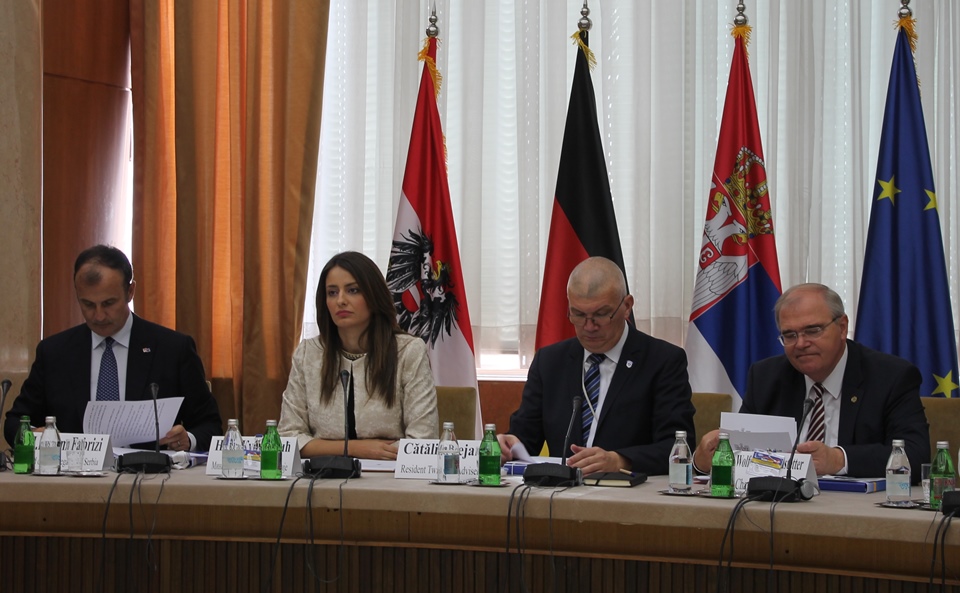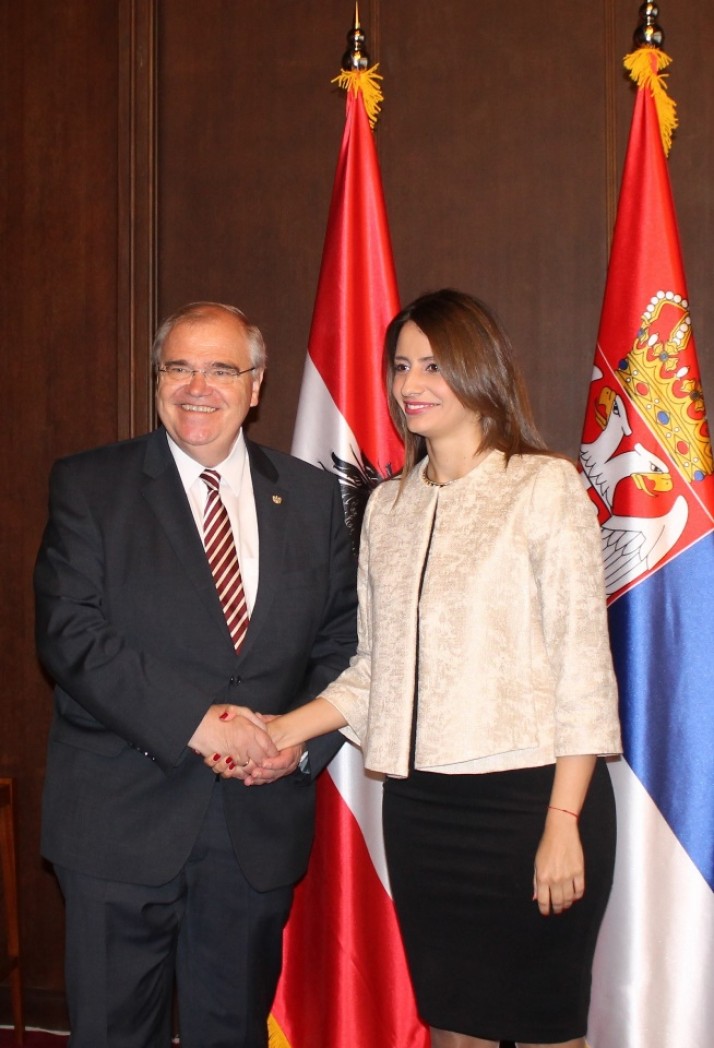Today, Minister of Justice Nela Kuburović stated that prison conditions in Serbia of the day were much better than they were in 2010, even compared to much richer EU member states, adding that the Ministry of Justice would continue with its policy to improve the infrastructure in correctional-penal institutes.
At a conference marking the commencement of the “Increasing the Serbian Prison System Capacity” Project, the Minister noted that the policy aim was to improve the living conditions of convicted persons in accordance with the EU standards, as well as the working conditions of prison employees. “Proof of us having achieved good results over the past several years is the latest report by the Council of Europe in which Serbia’s progress in increasing housing capacities was commended. Today, we can rightfully claim that we are no longer on the black list”, Kuburović said.
She reminded [the conference participants] that blocks of the District Prison and the Special Prison Hospital in Belgrade, pavilions of the Correctional Home in Kruševac and the Correctional-Prison Institute in Nis had been renovated in the previous period. She also mentioned that reconstruction works on an existing and the construction of a new pavilion in Women’s Correctional-Prison Institute in Požarevac were underway, as well as that the construction of new facilities for the Correctional-Prison Institute in Sremska Mitrovica, Leskovac and the Correctional-Prison Institute in Požarevac Žabela were expected soon. Also undergoing implementation were two large investment projects: the construction of a new prison in Pančevo and Kragujevac.
Kuburović stressed that the Justice Ministry was receiving great support in its efforts to advance the penal sanctions enforcement system from international institutions and organisations, particularly certain EU member states. As one example of that support, she named the project for the enhancement of the Serbian prison system capacity which the EU was sponsoring with EUR 950,000 and Serbia co-sponsoring with EUR 50,000. “This project ought to also significantly contribute to the execution of the Chapter 23 Action Plan activities”, the Minister stated. She explained that in the following 18 months – which was the project duration – staff training on the application of specialised programs on the treatment of convicted persons and vulnerable categories of convicted persons would be conducted, with particular regard to education, working skills and professional skills of women convicts serving in the Women’s Correctional-Prison Institute in Požarevac, by increasing opportunities for being employable after they have served their sentences, which would decrease the level of recidivism.
Also attending the conference was the Austrian Vice-Chancellor and Justice Minister Wolfgang Brandstetter who said that the enforcement of penal sanctions was a very important part of the rule of law, which made the project so significant. He noted that the modernisation and the refurbishment of prisons were important, acknowledging Serbia’s many efforts to that effect. However, she stressed that a continued investment in the increasing of prison capacities was as important as in the post-penal treatment of convicted persons.
The Head of the EU Delegation to Serbia Sem Fabrizi stated that the EU was the largest donor in Serbia, having invested over 30 million euros in the field of judiciary alone. He highlighted that the new project would be directed towards the improvement of the prison capacities, as well as the skills levels of prison staff.
Before the start of the conference, Minister Kuburović and the Vice-Chancellor and Justice Minister of Austria held a bilateral meeting.
The video coverage can be downloaded from www.infobiro.tv for free.




